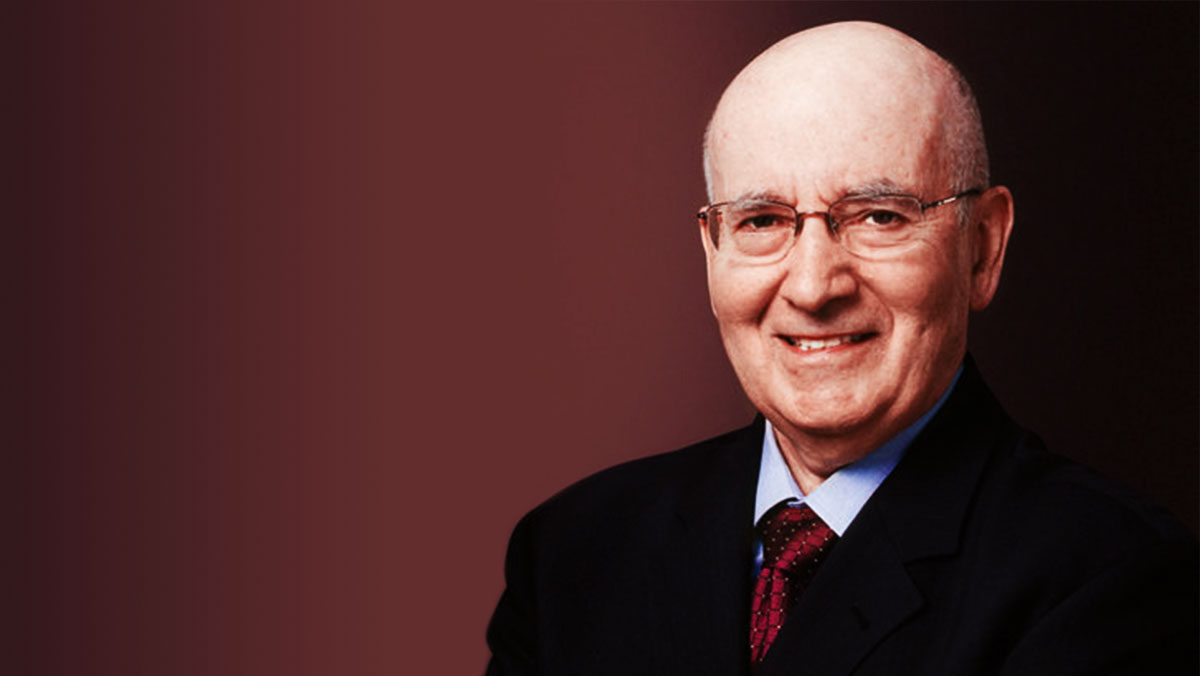
When was the last time you stopped from your usual marketing-related tasks, took a step back, and questioned what you were doing? When was the last time you questioned marketing and its purpose – your purpose; your role as a marketer?
This business-driven world that we live in keeps us focused on our tasks, not granting us the luxury of questioning where it’s leading us. Marketing, along with its fellow disciplines (brand management, advertising, sales, etc.) has inertially evolved into something we can no longer grasp in its entirety. A complicated entanglement of job titles, buzzwords, mediums, and business goals that made us no more than simple dabblers, tasking away our work-life without even knowing what we’re doing. The moment has come to take a step back and ask some fundamental, important questions about this discipline of ours – marketing – and put ourselves back in charge of it.
To ask these questions, Brandingmag looked towards the beginning, the fundamentals – modern marketing management – and reached out to its most esteemed practitioner, also known as the ‘founding father’, Professor Philip Kotler. Each and every one of us has learned from his lessons and books, and most of us are practicing his marketing management methods to this day. Kotler, S. C. Johnson Distinguished Professor of International Marketing at the J. L. Kellogg School of Management, shaped business and marketing through his restless work and even does so today, closing in on publishing a new book on the subject, at the venerable age of 89.
The esteemed professor answered all of our honest and forward-thinking questions, bringing some much-needed clarity to where marketing is heading. Here’s what he has to say:
Brandingmag: Is there anything wrong with the way marketing is practiced nowadays? What is the new direction for this discipline and should it be more strictly regulated?
Prof. Philip Kotler: Many companies still practice marketing as a “push” discipline. You broadcast your ads to a wide variety of persons or companies hoping that some might try or buy your product. This annoys all the people who have no interest in your product. Companies get better when they define appropriate target market segments. They get even better when they collect the names of individuals who are more likely to be interested in their product. Fortunately, more companies today are collecting hard data and using digital and social media to contact “good” potential clients.
Regulation should only be used to prevent untruthful ads or faulty or harmful products from coming into being.
Bm: What role does brand management play in the new iteration of marketing, given that the ‘brand’ has transitioned from a marketing asset to a general business asset?
Prof. PK: A new brand typically starts its life as a marketing asset. The new brand is managed by a brand manager or team. The team will look for ways to expand the brand name to new adjacent products. If successful, the brand becomes a general business asset managed with inputs coming from several business functions besides marketing. The brands Coca-Cola or McDonald’s require continuous strategic thinking coming from the whole company. Marketing still plays one of the key roles.
The marketer’s job is to be a value creator.
Bm: You have always placed a societal accent on your marketing views. Why is it important for the component of well-being to be present in any marketing strategy?
Prof. PK: The marketer’s job is to be a value creator. He or she must design various product features with an eye toward their impact – not only on the customer but also on the environment. Patagonia tries to design products with minimal environmental impact. They want their clothing to last a long time, be reused, even repaired or contributed to someone else who could use it.
Most products involve packaging. Is the packaging biodegradable? Starbucks’ Howard Schultz spends a lot of time on the cup problem: cups are used only once and become waste. Companies should not only be environmental in their outputs but they should only buy inputs from those firms that are also environmental. Walmart stopped using a certain supplier whose trucks were fuel-inefficient.
Bm: Brands that ignore society’s well-being in their marketing – are they actually unconsciously involved in regressive activism?
Prof. PK: I assume that most regressive activist brands know that they are regressive. Take the case of cigarette brands: Tobacco managers know that their brand harms health; they even must declare this on the package. Consumers are aware of the harm but, as addicts, they continue to buy and smoke cigarettes. Some tobacco brands try to reduce their regressive features by introducing filters or lowering nicotine to please those with a health concern. If tobacco companies were really serious, they would try to get kids not to start smoking and they would tell users “the fewer smokes a day, the better.” Today consumers are more health-conscious. Companies whose products carry a lot of fat, sugar, and salt are trying to reformulate them to be less harmful.
Bm: Can (brand) purpose be a foundational guiding light, ensuring that any and all marketing efforts of said brand have a social component from the get-go?
Prof. PK: Companies too often carry the view that the purpose of business is to make profits for the shareholders, period. Milton Friedman, the economist, persuaded most companies and most business schools to adopt this view of the purpose of a company. The company should not give away its profits to social causes. That’s for the shareholders to do with their dividends if they wish. Fortunately, more companies now are moving from Shareholder Capitalism to Stakeholder Capitalism. The purpose of a company is to reward all the stakeholders – employees, suppliers, distributors, and communities – for their contribution to the company’s success. The company’s purpose should be a triple bottom line: profits, people, and the planet. I would go so far as to say that social purpose should be an intrinsic part of every decision the company makes.
Bm: Do you believe that brands can (and should) be obligated, by law, to ‘adopt’ one major cause of the Wicked 7 and contribute a certain amount of revenue and effort to the global attempt at battling that cause?

Prof. PK: My answer is “no” to requiring companies by law to adopt and further a major social cause. I would prefer to rely on evidence that companies that take action to mitigate a major social problem win extra interest and attachment of consumers and employees who care about this problem. Let’s convince companies of the social and economic benefits that come from showing that they are more than money-making machines.
Bm: In the pursuit of humanizing corporate behavior and proactive social & environmental involvement, how can brands perpetuate appropriate (human) values in their talent management?
Prof. PK: Companies that take an interest in a social cause are likely to catch the attention of talented persons interested in that cause. The chosen social cause will expand the company’s recruitment prospects. Over time, the company’s employees will be more pleased and motivated. The employees might propose company projects to help the social cause.
I would go so far as to say that social purpose should be an intrinsic part of every decision the company makes.
Bm: Your books have provided guidance for all of modern marketing. What are you working on now? What should we expect in the near future?
Prof. PK: My next book (to be published in early 2021) is Marketing 5.0. My previous book, Marketing 4.0, described the transition from traditional marketing to digital marketing. The book focused on gathering consumer data, using marketing analytics to find marketing insights about consumer behavior and to translate these insights into targeted messages for different consumers.
Marketing 5.0 is about unleashing the full power of new digital technologies in marketing strategies, tactics, and operations. We examine how marketers can use game-changing technologies – artificial intelligence, natural language processing, sensors, robotics, augmented-virtual reality, and the Internet of Things – to win and keep more and better customers
Bm: What is your view on a potentially unified world government as the next step in the evolution of the human species? What would be the role of marketing in such a society and what would it look like?
Prof. PK: I would worry about a unified world government. Would it be on the Chinese model or the American model? I believe that all nations should strive for two things. The first is to build successful value-creating companies. The second is to work with other nations to build a more peaceful and progressive world. The United Nations has prepared a new set of 17 goals for nations to pursue. If all nations contributed to these 17 goals, the world would be more peaceful and progressive.
Special thanks to our contributor and member of The Wicked7 initiative, Ivan Gurkov, who made this interview possible.
